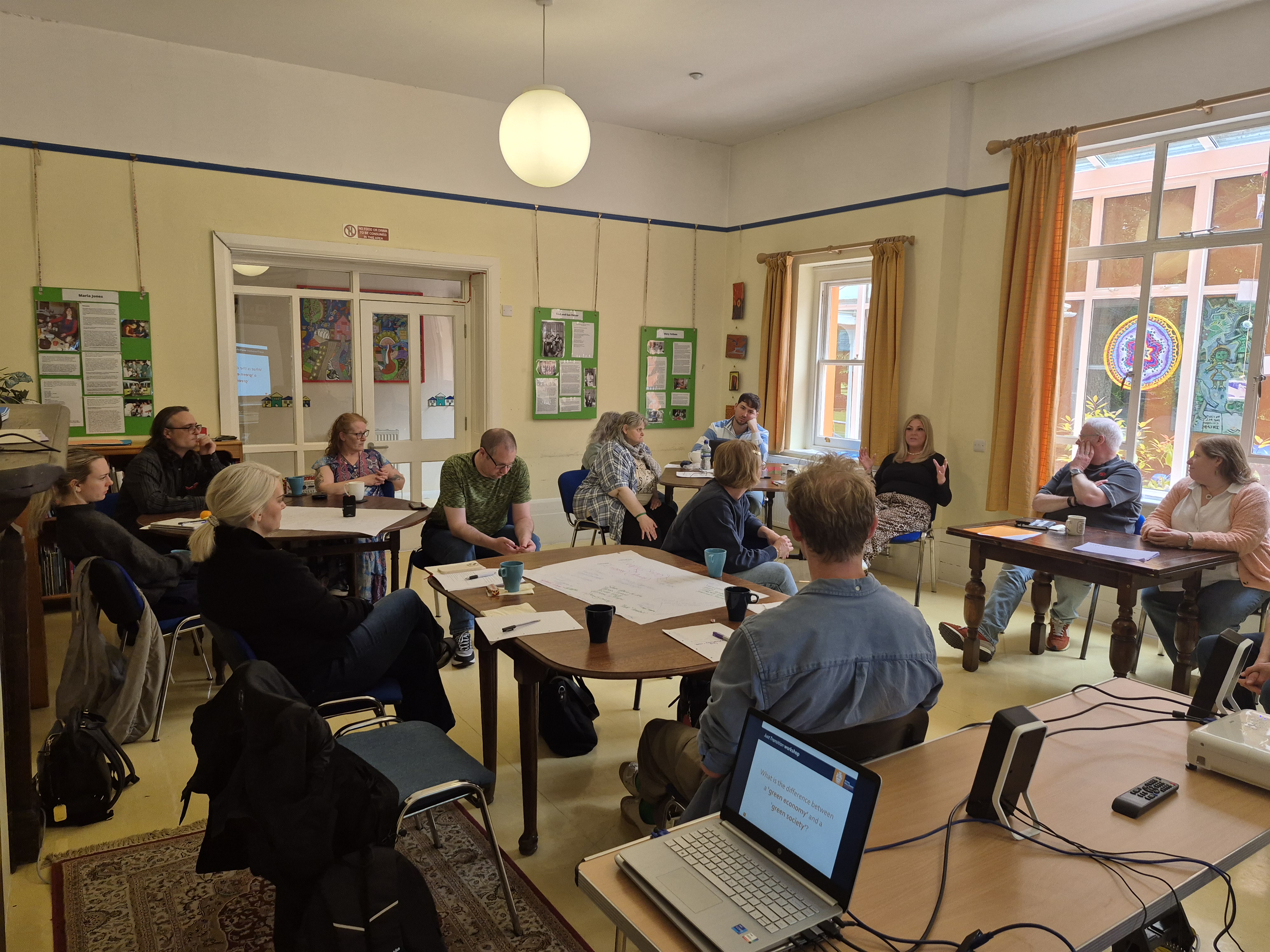This knowledge exchange event is one of a series looking at the just transition to a sustainable future. The purpose was to bring anti-poverty activists, researchers and academics into dialogue.

Project lead: Tom Croft, PIRP
Partner organisation: APLE Collective
Underpinning research
This SSIA-funded PhD studentship, awarded to Tom Croft in PIRP, looks at the role of participatory inquiry on poverty research. Participatory inquiry, where those with a lived experience of poverty are co-equals in the research process, can yield unique insights into the nature of poverty as well as better motivating action to combat it. Tom’s research involves collaboration with the Joseph Rowntree Foundation (JRF) and anti-poverty charity ATD Fourth World.
Overview of project
This project seeks to make the philosophical case for participatory inquiry in poverty research, one where those with experience of poverty are co-producers in the research design, execution and dissemination processes.
Event summary
This knowledge-exchange workshop was one of a series looking at the topic of a just transition to an ecologically sustainable future, and was organised with Dr Martina Hutton in the School of Management. The workshop was run in collaboration with the APLE collective and brought anti-poverty activists, researchers and academics into dialogue.
In the first session, participants reflected on the notion of being left behind. This was thought to be true in research on poverty itself, as without the perspective of those with lived experience, policy-makers may overlook the potential burdens of policies on those in poverty. The second session focused on the difference between a green economy and a green society, with participants discussing a circular economy, social credit union and other communitarian ideas. In the final session, participants discussed how the burdens of moving to a more sustainable, climate-friendly economy could be more equitably shared.
Anticipated outcomes and impact
This workshop facilitated interaction between academics, policy-makers and activists with on the ground experience, allowing all to share and extend their expertise. It also challenged the categories of knowledge ‘production’ and knowledge ‘exchange’ through the co-production of research agendas. This is an important step towards making those with lived experience central to the process of research.

























